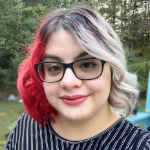 Hispanic Heritage Month creates opportunities for Hispanics to share and explore parts of their roots and cultures. Younger first-generation and second-generation immigrants are raised with the traditions of their parents in the environment of a new society.
Hispanic Heritage Month creates opportunities for Hispanics to share and explore parts of their roots and cultures. Younger first-generation and second-generation immigrants are raised with the traditions of their parents in the environment of a new society.
Gender roles and societal norms from the home country are expected to develop in these children, and it presents itself as a challenge when children deviate from these expectations as they age. It is referred to as being whitewashed, living with too much influence from American culture.
It may be seen as humorous, such as my cousin’s aversion to spicy food. Or forgetting or mispronouncing words in Spanish, or developing an accent in both English and Spanish.
Sometimes it may hit deeper, such as not being able to speak Spanish at all, therefore being ostracized from our family and community.
There is not an easy balance to see when cultural norms are causing harm when the conversation focuses on the rejection of tradition.
Whitewashed, the assimilation to western cultural ideals rather than honoring cultural backgrounds. There is no set balance to this concept; this is an easy insult to someone who is balancing two cultures. It can cause confusion and even the misbelief that one is not “Hispanic enough” despite the logic otherwise.
As a second-generation immigrant, I internalize these sentiments. I find myself questioning if I am committing cultural appropriation of my own culture when I try to engage with my Latinx roots. I often wonder if it is alright for me to wear my traditional Mexican dresses.
It should be, and yet, they have hung untouched for years in my closet. My mother mentions them every once in a while, wondering why she has never seen me wear them.
I have a fear of being judged for wearing objects of my ethnicity, for it to be seen as a performance. A costume.
Am I too American to wear something culturally significant when it is not a special occasion, or is this whitewashed thinking by placing significance on these articles of clothing when they are simply worn casually by people in my parents’ home country?
Calling the influence from American culture and society whitewashing creates a sense of guilt and/or betrayal to our roots. Especially in conversations about success and the pressure to fulfill the goals of parents who migrated to the US for better lives.
Hispanic cultures are collective and family oriented while American society places value on individualism.
Expressing desire for independence can be attributed to whitewashing. Displaying interests in certain career paths are described as whitewashing, because only white individuals are able to succeed in certain fields. Artists, musicians, actors – these are some paths that feel reserved for White Americans.
It cannot be denied that being a minority creates challenges in the development of a career, but that alone is not enough to diminish the desire to pursue those paths. Calling the pursuit of those career paths whitewashing does not do justice to individuals because White Americans are not the only ones who should be encouraged to show their creativity.
Yet, it is difficult to shake off the feeling that there are only a few possible career paths that would honor the sacrifices made for the opportunities.
In the dialogue of the “American Dream,” people have options and will succeed if they are passionate and work hard to achieve their goals. However, there is a longer, unspoken sentence present. “People have options, but they must choose to follow one predetermined path in order to be successful.”
The question arises as to how much can people act on their personal desires, and how much are they expected to do to pay back what their parents have given them.
In my personal narrative, I have achieved my version of success in my academia due to my parents’ sacrifice. None of this would have been possible without their sacrifices and guidance within this country where I was raised. With this in mind, it is difficult to acknowledge one’s individual efforts when performing a task seen as an obligation to the sacrifice of family.
Yes, my parents made it possible for me to accomplish what I have done so far, but I am also the one responsible for getting me where I am today.
To understand my cultural identity, I look towards the concept of biculturalism. When we are not one or the other, biculturalism says we are products of both.
In this combination of cultures, something entirely new is created.
A clear example of this for me can be seen in the use of language.
I grew up speaking Spanish and English. Spanish at home, English at school. However, in society with friends, peers, and younger family members, we spoke both. As mentioned, accents are developed in both languages, and there are those frustrating cases when a word is forgotten in one language. Spanglish is the language in which I am most fluent, the one that comes most naturally.
It is very important to understand and acknowledge the credit we have for ourselves, and process that the experience of biculturalism is not whitewashing, but a creation of its own.
A new experience Hispanic community members establish for themselves in American Society.
As we explore and live in our reality, we can take part in activities that occur for Hispanic Heritage Month and celebrate that aspect of ourselves.
 Jarytza Linares is a graduate student in the Joint Master of Social Work Program at NCA&T and UNCG with a background in WGS and Sociology. She is a second-generation immigrant who enjoys learning about multicultural experiences and languages. She is currently an intern with Sunrise-Amanecer, an LGBT+ affirming, bilingual mental health agency.
Jarytza Linares is a graduate student in the Joint Master of Social Work Program at NCA&T and UNCG with a background in WGS and Sociology. She is a second-generation immigrant who enjoys learning about multicultural experiences and languages. She is currently an intern with Sunrise-Amanecer, an LGBT+ affirming, bilingual mental health agency.

There are no comments
Add yours